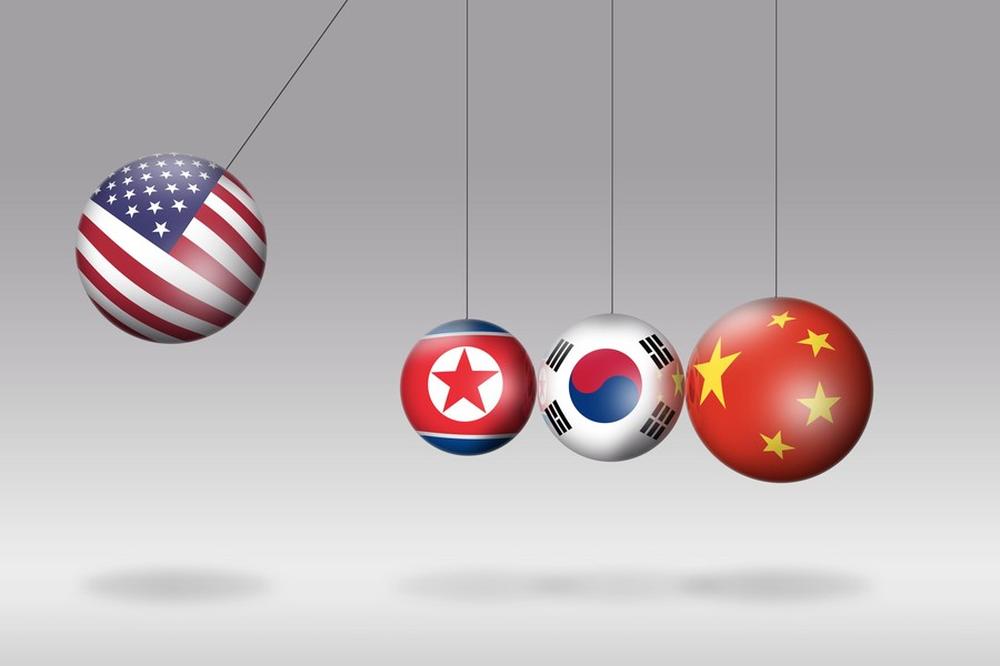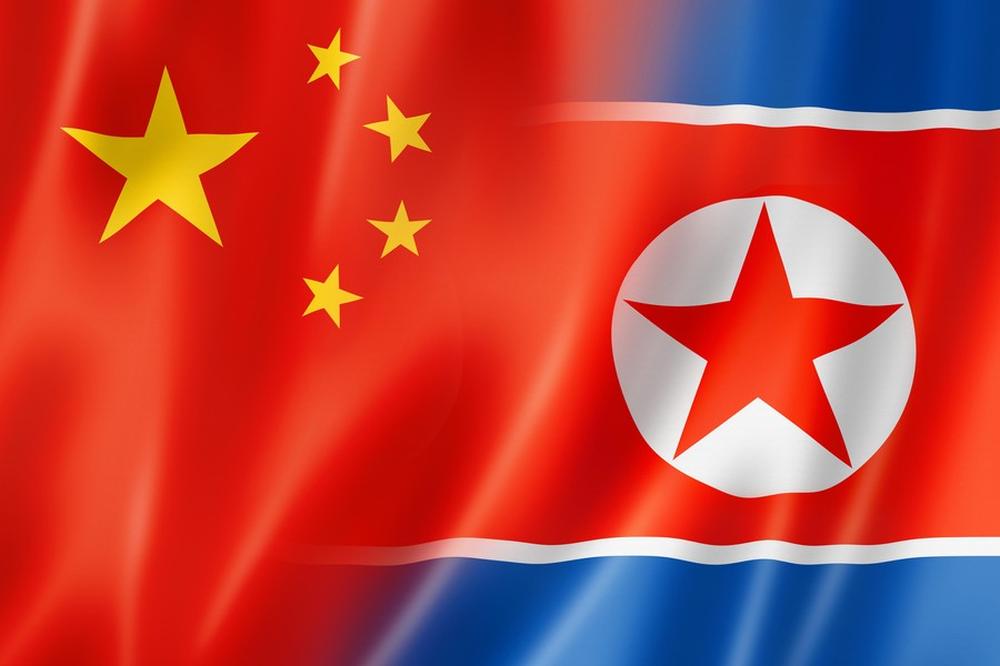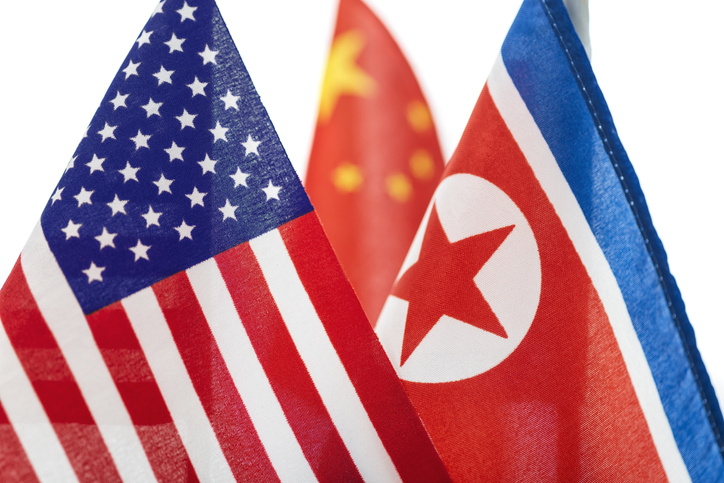- #China
- #North Korea
- #US Foreign Policy

► The Chinese current assessment does not yet support the imminence of North Korean provocations. North Korea wants to keep the door to negotiations open, and it understands very well that early provocation with a nuclear or ICBM test will bury the chance for diplomatic engagement—and the possibility for such engagement still exists with the Biden Administration.
► If the Chinese assessment is indeed correct that the North Korea situation will remain relatively stable in the foreseeable future, the current stalemate on the Korean peninsula will continue.
After almost seven months in office, the Biden Administration has not shown much interest or made much effort to engage North Korea on the resumption of diplomatic negotiations. Such negotiations were most recently described as a “high-risk, low-reward gambit” by the Washington Post, which illustrates the deeply rooted cause for the stalemate. The situation is certainly not what South Korea would like to see. With his last year in office, President Moon Jae-in is more than eager to see the resumption of the negotiations, most importantly as a part of his political legacy. As North Korea’s largest supporter and external patron, China apparently plays a critical role in shaping North Korea’s preference. The question is: does China support the resumption of the U.S.-DPRK negotiations? If so, what role China could play to encourage DPRK back to the negotiation table?
North Korea’s Growing Dependence on China
As North Korea faces the severe challenge domestically in light of the COVID crisis and the diplomatic stalemate with the U.S., China evidently remains the most consequential external player in North Korea’s calculus. Since 2018, the deterioration of China-DPRL relations has officially come to an end and Beijing has since then maintained a close and supportive relationship with Pyongyang. The leadership summitry soared with four visits by Kim Jongun to China in 2018 and early 2019, which paved the ground for President Xi’s visit to North Korea in June 2019. During this period, because the sanction was never eased during the diplomatic engagement, North Korea has been continuously dependent on China for assistance to keep the regime afloat. In the summer of 2020 alone, China provided 600,000 tons of food supplies (rice and corn), as well as fertilizer.
However, the COVID pandemic still has had a major detrimental effect over North Korean economy. In 2020, North Korea’s trade with China decreased by 81%, the most of which was caused by Pyongyang’s decision to close the border to prevent the inflow of COVID. China has provided medical assistance to North Korea to help the latter to deal with the COVID pandemic. It is also observed that illegal trade along the border have picked up speed again to allow for the inflow of cash and commodities into North Korea.
With North Korea’s growing predicament comes the increasing dependence on China. People assume that such dependence translate into concrete influence of Beijing to shape Pyongyang’s behaviors. There has long been a debate as for how much influence China could actually exert to shape Pyongyang’s behavior. And many would agree that China could influence North Korea’s decision on technical and tactical issues but could hardly change its strategic agendas such as its nuclear weapons program. However, returning to negotiations with the U.S. is tactical in nature and aligns with China’s preference for diplomacy. It is therefore assumed that China could play a positive role.
Who Is Responsible for the Stalemate?
Although China favors diplomacy, the hope for China to press North Korea back to negotiations faces at least two major obstacles. The first is the perception that it is Washington, rather than Pyongyang, that is the party reluctant to resume talks. The second is the deterioration of U.S.-China relations and the growing impact of great power competition.
By default, China prefers diplomacy.
However, Beijing’s press of diplomatic engagement has primarily focused on pressuring the U.S. rather than North Korea in recent years. In China’s view, the reluctance to reopen negotiations has primarily come from Washington. If the Biden Administration is indeed returning to the “strategic patience” policy by the Obama Administration, North Korea in Beijing’s views should not be held accountable for the stalemate. Following in this vein, Beijing has repeatedly pushed Washington to seek diplomatic engagement with North Korea to improve bilateral relations, pursue a peace regime and a peace treaty, which China sees as the needed precondition for the denuclearization of North Korea.
Therefore, for Beijing, the question on the resumption of diplomatic negotiation is more about how to bring Washington rather than Pyongyang back to the negotiation table. As the Chinese diplomats have iterated repeatedly, China sees that it is America’s turn to reciprocate to North Korea’s moratorium on nuclear and missile testing, which practically equates to rewarding North Korea for the provocations that it could have committed but did not. Although Washington sees the moratorium as nothing but the implementation of the UN Security Council resolutions, China nevertheless sees it as a North Korean goodwill that U.S. never properly responded to.
Some strategists have proposed for China to put more pressure, such as tougher sanctions on North Korea, believing the combined effect of the COVID pandemic, North Korea’s economic difficulties and increased sanctions could force Pyongyang back to the negotiation table.
If that is the case, then China most likely will not be helpful at all. As it currently stands, China finds little to no incentive to pursue further punitive measures on North Korea. To Beijing, North Korea’s moratorium on nuclear and missile testing represents unprecedentedly good behavior, and additional sanctions at this point are not justified without further North Korean provocation. So long as North Korea refrains from new nuclear tests or ICBM tests, China finds the current status quo acceptable. A relatively well-behaved DPRK still possesses nuclear weapons and China still pursues a denuclearization mandate. Nevertheless, for Beijing, the great power competition has increasingly pushed the denuclearization agenda down the road and into the future.
U.S.-China Great Power Competition
With the intensification of the great power competition with the U.S., China’s posture is clear – Beijing is hoarding North Korea as a strategic leverage and is unlikely to facilitate the resumption of diplomatic engagement through pressure as many would like to see. The logic is simple and clrea: if China has to prepare for a long-term and escalating competition with the U.S. for the foreseeable future, it will need as much leverage as possible to gain advantages. As such, any move that would affect or undermine China’s relationship with North Korea will be seen as unwise and premature. Although Washington would like to “confront if we must and cooperate if we can” in its relations with China, for the Chinese, the overall competitive definition of the broad relationship has significantly, if not completely, disincentivized cooperation on the Chinese side.
China’s calculus could change. When and only when the shared interests between U.S. and China outweigh their diverging interests, will cooperation become possible. In the case of North Korea, if the country resumes provocation and endangers regional peace and stability, it could change China’s calculation as China would like to avoid a military contingency. But that scenario would dictate crisis management, which is fundamentally different from resumption of diplomatic talks.
In addition, the Chinese current assessment does not yet support the imminence of North Korean provocations. North Korea wants to keep the door to negotiations open, and it understands very well that early provocation with a nuclear or ICBM test will bury the chance for diplomatic engagement—and the possibility for such engagement still exists with the Biden Administration. If the Chinese assessment is indeed correct that the North Korea situation will remain relatively stable in the foreseeable future, the current stalemate on the Korean peninsula will continue.
Yun Sun is a Senior Fellow and Co-Director of the East Asia Program and Director of the China Program at the Stimson Center. Her expertise is in Chinese foreign policy, U.S.-China relations and China’s relations with neighboring countries and authoritarian regimes. From 2011 to early 2014, she was a Visiting Fellow at the Brookings Institution, jointly appointed by the Foreign Policy Program and the Global Development Program, where she focused on Chinese national security decision-making processes and China-Africa relations. From 2008 to 2011, Yun was the China Analyst for the International Crisis Group based in Beijing, specializing on China’s foreign policy towards conflict countries and the developing world. Prior to ICG, she worked on U.S.-Asia relations in Washington, DC for five years. Yun earned her master’s degree in international policy and practice from George Washington University, as well as an MA in Asia Pacific studies and a BA in international relations from Foreign Affairs College in Beijing.


